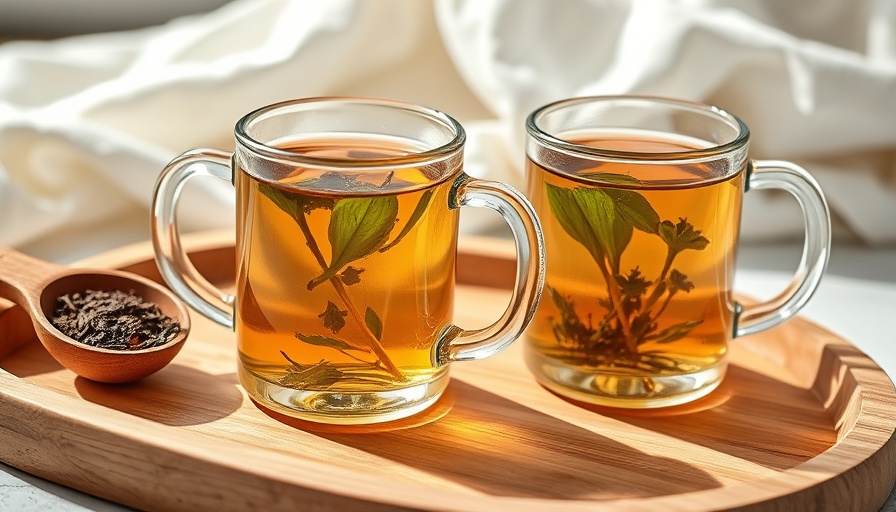
Combat Inflammation with Home-Made Herbal Tea
Living with chronic conditions can feel overwhelming, especially as more people are diagnosed with autoimmune diseases like Hashimoto’s. While inflammation often takes the blame for various health issues, it's essential to understand what it truly represents: the body’s response to an overstressed immune system. Fortunately, remedies like herbal teas can play a significant role in managing inflammation and supporting recovery.
Understanding Inflammation: The Body’s Response
According to health experts, inflammation occurs when the body is overwhelmed by toxins and stressors. Maggie Berghoff, a functional medicine practitioner, emphasizes how a multifaceted approach is key to reducing inflammation. This includes lowering toxic stressors in our environment while boosting the body’s natural healing abilities. For many, herbal remedies can offer gentle yet effective support on this journey.
The Power of Anti-Inflammatory Herbs
When it comes to anti-inflammatory herbs, the choices are plentiful, each with unique healing properties. Curcumin from turmeric root is famous for its potent anti-inflammatory effects; however, it isn’t suitable for everyone and may cause gastrointestinal irritation in some. Other herbs like ginger, chamomile, fennel, and licorice also contribute to easing inflammation and supporting gut health. Most excitingly, herbal teas can combine these powerful ingredients conveniently.
Crafting Your Own Anti-Inflammatory Tea
The allure of making your own herbal tea lies not just in the economy of it but also in the ability to customize it to your liking. Purchasing high-quality herbs from bulk suppliers reduces costs and enhances the flavor profile of your tea. Here’s a simple anti-inflammatory tea recipe you can make from home:
- Green Tea: This gives the tea body and is packed with antioxidants like epigallocatechin (EGCG), beneficial for combating inflammation.
- Ginger Root: Renowned for its pungent taste and warming properties, ginger provides multiple benefits, including pain relief and nausea support.
- Optional Add-Ins: Consider adding chamomile for its calming effects, or a touch of honey for sweetness.
Mix these ingredients and let them steep for a few minutes to extract the flavors. Enjoying a warm cup not only helps soothe inflammation but can transform your day, introducing a comforting ritual into your healthy lifestyle.
Benefits Beyond Inflammation
Incorporating herbal teas into your routine extends beyond inflammation relief. These soothing brews can enhance your overall well-being by encouraging proper hydration, improving digestion, and reducing stress. Creating mindful moments out of your tea-drinking experience serves as a gentle reminder to slow down in our fast-paced lives.
Take Charge of Your Health
As you explore the benefits of anti-inflammatory herbal tea, consider how these small changes can contribute to your overall wellness. Whether dealing with chronic health issues or seeking proactive ways to maintain your well-being, embracing herbal remedies can profoundly affect your health journey.
What's your go-to herbal remedy? Share your thoughts and experiences with us!
 Add Row
Add Row  Add
Add 




 Add Row
Add Row  Add
Add 

Write A Comment